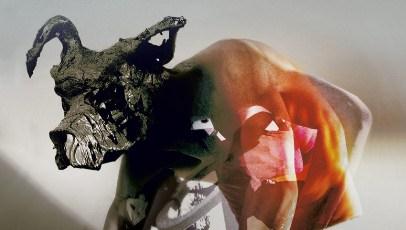Alexander Raskatov - A Dog's Heart (2010)
Alexander Raskatov - A Dog's Heart (2010)

1. Part 1 2. Part 2 Professor Filipp Filippovich Preobrazhensky - Sergei Leiferkus Peter Amoldovich Bormenthal - Ville Rusanen Sharikov - Alexander Kravets Sharik the dog (unpleasant voice) - Elena Vassilieva Darya Petrovna – Elena Vassileva Zina - Nancy Allen Lundy Shvonder - Vasily Efimov Vyasemskaya - Ivo Posti Big Boss - Jan Alofs First Patient, Provocateur - Brian Galliford Second Patient - Annett Andriesen Proletarians - Marieke Steenhoek, Ivo Posti, Vasily Efimov, Tiemo Wang Fyodor,Newspaper Seller - Alexander Egorov First Drunkard, Rechercheur: Marijn Zwitserlood Second Drunkard - Job Hubatka Old Women - Caroline Cartens, Ekaterina Levental, Gesa Hoppe Puppeteer - Mark Down Radio Kamer Filharmonie Conductor - Martyn Brabbins
The world premiere of Alexander Raskatov’s A Dog’s Heart, based on a novella by Mikhail Bulgakov, was an overwhelming success in 2010. McBurney’s staging is breathtaking, witty and dynamic.
A fuller synopsis can be found elsewhere, but briefly, A Dog’s Heart reworks Mikhail Bulgakov’s satire. Cesare Mazzonis’s libretto is translated by Martin Pickard. The opera opens with a stray dog – the superb puppet work inspired by Alberto Giacometti (click here for the sculpture in question) – mistreated by men, apparently rescued and promised a dog’s paradise by a distinguished scientist, Professor Filipp Filippovich Preobrazhensky. The parallelism between the new workers’ state and the animal’s condition is revealingly maintained and deepened throughout, likewise the repellent superior pretensions of Preobrazhensky – the name will be familiar to students of Bolshevism and Stalinism – both as scientist and as human. Eventually, the professor sees his chance for true scientific glory. Having fed up the dog, whom he has named Sharik, he transplants human testicles and a pituitary gland, to create a ‘new man’, Sharikov. Sharikov’s antics leave him, the professor notes, at the most rudimentary evolutionary level, yet that is hardly Sharikov’s fault; indeed he garners hope from association with proletarian organisations, further horrifying his creator. The professor disowns him and conducts a second operation. The creature is once again a ‘mere’ dog. I could not help wondering about a potential English play on words: is the dog man another representation of our desire to create a god man? --- boulezian.blogspot.com
First published in 1925, Bulgakov's novella was banned in the Soviet Union the following year and not republished there until 1987. Its central character is Sharik, a dog who falls into the hands of a medical professor, Filippov, who specialises in rejuvenating transplants. He implants a human pituitary gland and testicles into Sharik, creating Sharikov, who retains all the worst characteristics of both species – getting drunk, singing obscene songs and raping the house maid – but who nevertheless finds himself a post in the Moscow bureaucracy, in charge of ridding the city of cats. Eventually, even Filippov realises he must reverse his operation.
Cesare Mazzoni's adaptation, given at ENO in Martin Pickard's translation, is straightforward enough, but to call the result an opera is stretching the definition considerably. Raskatov's score never takes responsibility for shaping the drama or moving it forward, and though it follows in the absurdist tradition of Shostakovich's The Nose and Schnittke's Life With an Idiot, the music is desperately thin. With the exception of some coloratura soprano writing that owes a lot to Ligeti's Grand Macabre, the vocal lines are declaimed rather that truly sung, with the orchestra confined to punctuating or reinforcing them. Raskatov selects his orchestral palette with care, but the result is inert, a trivial background to what is happening on stage. --- theguardian.com
download (mp3 @320 kbs):
yandex 4shared mega mediafire uloz.to cloudmailru
Last Updated (Saturday, 13 May 2017 17:11)








